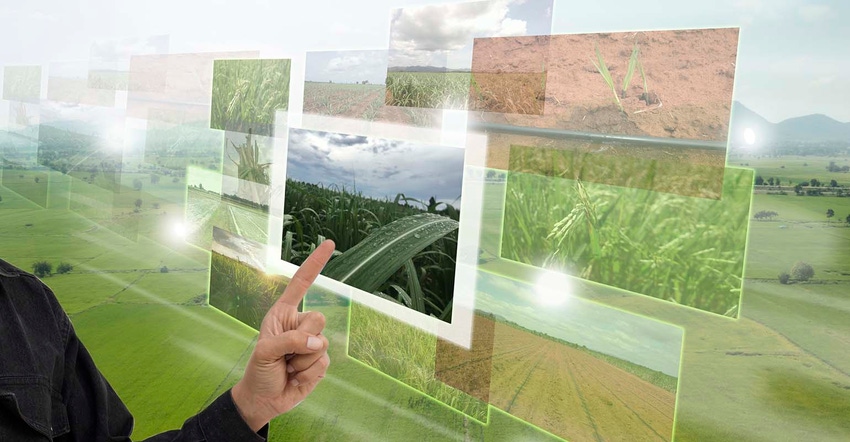May 27, 2020

Six early-stage companies have been selected to participate in the Wells Fargo Innovation Incubator, a technology incubator and platform. Each company participating in the second cohort of this invitation-only program will receive up to $250,000 in non-dilutive funding to further develop and validate its technology with scientists at the Donald Danforth Plant Science Center, the world’s largest nonprofit independent plant science institute.
The selected companies include:
AgroSpheres - Charlottesville, VA - Transforming crop protection with AgriCell, a powerful enabling technology for the efficient and improved use of synthetic chemicals and biologicals. AgriCell can mitigate the direct and indirect detriments of using chemical pesticides, with the goal to cut chemical pesticide use by at least 50%. Working with Drs. Dilip Shah and Kirk Czymmek from the Danforth Center, AgroSpheres will collaborate to investigate AgriCell interactions with host plant and pathogen cells and to explore whether encapsulating anti-fungal peptides increases their pesticide applications.
Chi Botanic – Sarasota, FL - Industrializing plant cell cultures as a production platform by replicating genetically identical plants at a large scale. The Chi Botanic technology will help develop valuable natural products more efficiently and cost-effectively. Chi Botanic will collaborate with Drs. Toni Kutchan and Brad Evans to investigate factors that increase consistency of production quality and yields for specific plant products.
EarthSense - Champaign, IL - Revolutionizing the way crop breeders and farmers collect and use impactful data, EarthSense employs machine learning and robotics in the field to increase, yield, eliminate resistant superweeds, and accelerate crop improvement. Collaborating with Drs. Todd Mockler and Andrea Eveland, EarthSense will deploy their robot to collect phenotype data in field settings and will collaborate to develop additional algorithms to enable automated phenotyping for genome wide association studies for advanced corn breeding.
Mobius - Lenoir City, TN - Building a future where organic waste streams are upcycled into valuable chemical building blocks. Mobius creates naturally biodegradable and compostable materials that can replace controlled-release fertilizers for improved plant and soil health. Dr. Chris Topp will lead a collaboration with mobius to explore the impact of formulations containing their renewable polymers and mineral nutrients on root architecture and function.
Pluton Biosciences - St. Louis, MO - Supplying the agricultural industry with microbes that are specifically targeted against various pests. By using a micromining process, Pluton Biosciences can help offset biological resistance that has been building against current products. Pluton Biosciences will collaborate with Drs. Toni Kutchan and Brad Evans to elucidate the identity and modes of action of biochemicals produced by their anti-nemocidal microbes
TerViva - Oakland, CA - Commercializing climate-resilient pongamia trees, a hardy legume tree that produces an annual crop of beans up to 10 times greater than soy for over 25 years. TerViva is increasing the global supply of plant protein and vegetable oil while restoring degraded agricultural land. TerViva will work with Dr. Allison Miller to develop stress resistant rootstocks to expand environments in which pongamia can be a viable high-yielding crop.
“The companies provide a window into the next chapter of agriculture. Their technologies are hyper-focused on optimizing efficiencies and scaling sustainable agricultural practices in order to feed a growing population amidst a changing world,” said Trish Cozart, IN2 program manager at NREL. “Our partners at Danforth live and breathe at the intersection of science, innovation and commercialization, and we’re pleased to connect their deep domain expertise and robust research capabilities with startup innovations.”
The incubator is funded by the Wells Fargo Foundation and co-administered by the National Renewable Energy Laboratory.
The new startups were first nominated by a nationwide network of IN2 Channel Partners, which includes more than 60 cleantech and agtech business incubators, accelerators, universities and industry experts—before undergoing in-depth review by Wells Fargo, the Danforth Center and IN2’s expert industry advisory board.
“On average, agriculture accounts for nearly 13% of global carbon emissions,” said Mary Wenzel, head of Sustainability and Corporate Responsibility at Wells Fargo and an IN2 board member. “IN2 is uniquely positioned to reduce the environmental impact of food production by validating promising, early-stage, clean agricultural technologies and accelerating their respective paths to commercialization.”
Agtech investing has shown great promise even with current economic uncertainties. A recent market analysis predicts investment dollars to reach $6.9 billion this year, doubling since $3.4 billion in 2017.
Source: Donald Danforth Plant Science Center, which is solely responsible for the information provided and is wholly owned by the source. Informa Business Media and all its subsidiaries are not responsible for any of the content contained in this information asset.
You May Also Like




